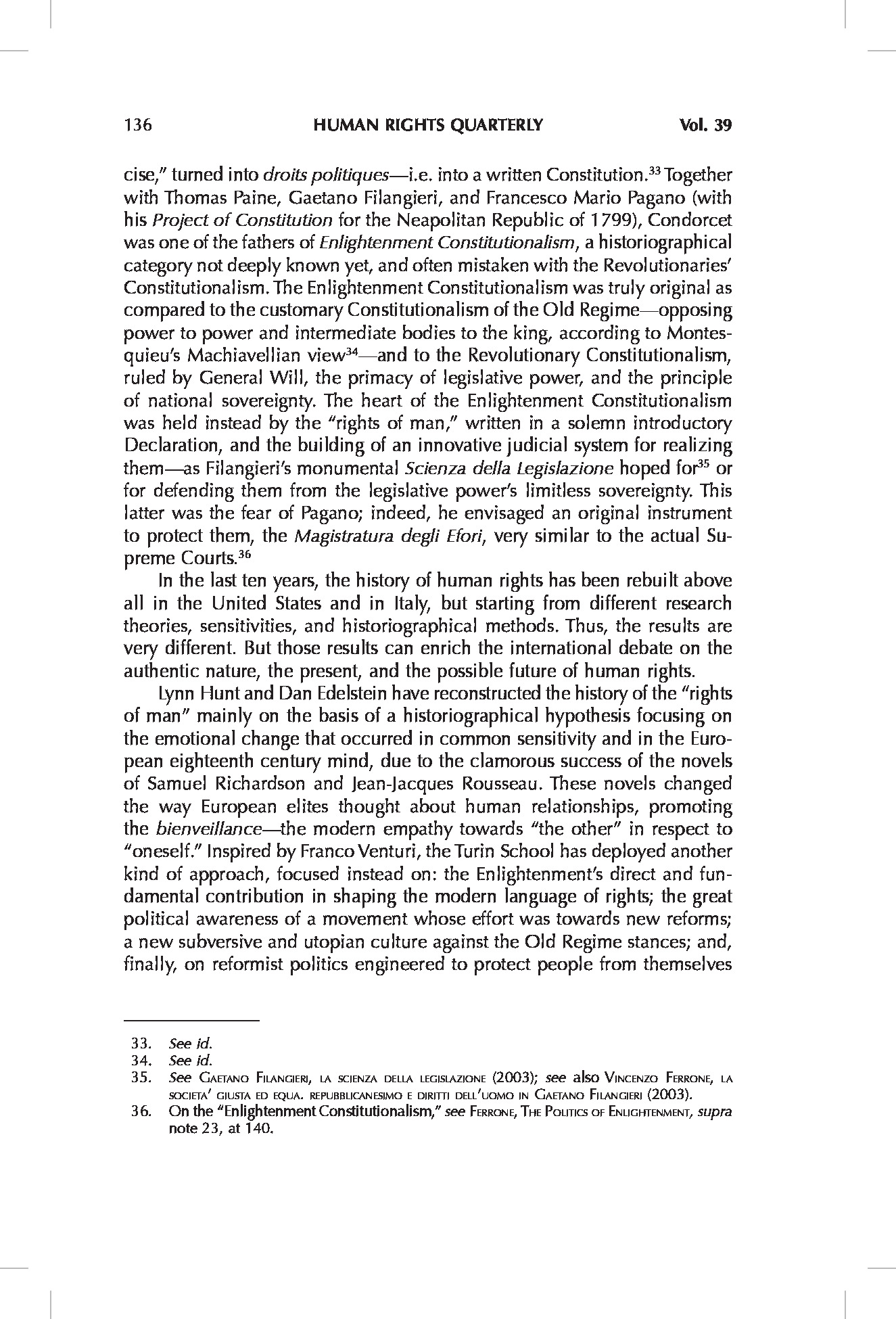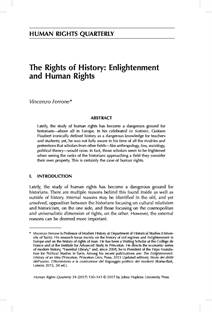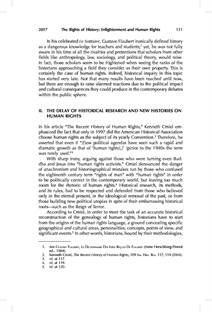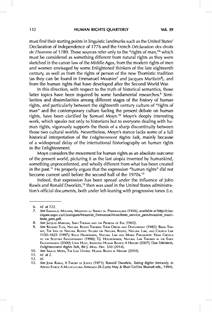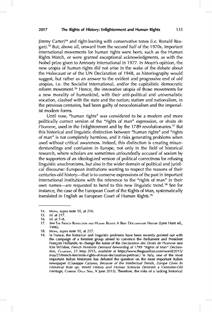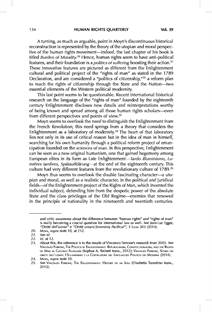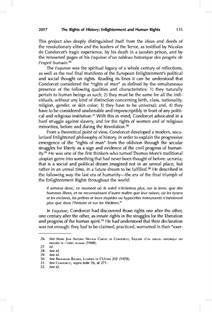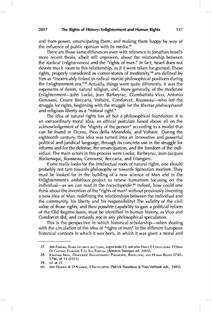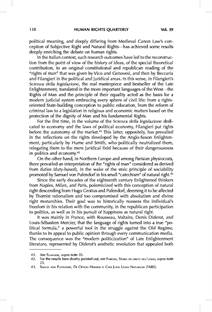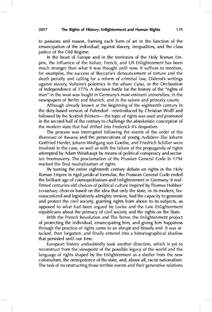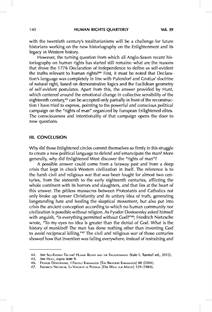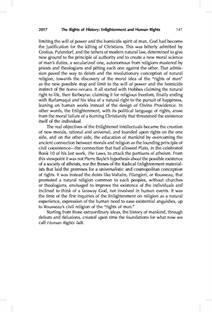Vol. 39
136
HUMAN RIGHTS QUARTERLY
33
cise,” turned into droits politiques—i.e. into a written Constitution. Together
with Thomas Paine, Gaetano Filangieri, and Francesco Mario Pagano (with
his Project of Constitution for the Neapolitan Republic of 1799), Condorcet
was one of the fathers of Enlightenment Constitutionalism, a historiographical
category not deeply known yet, and often mistaken with the Revolutionaries’
Constitutionalism. The Enlightenment Constitutionalism was truly original as
compared to the customary Constitutionalism of the Old Regime—opposing
power to power and intermediate bodies to the king, according to Montes-
34
quieu’s Machiavellian view —and to the Revolutionary Constitutionalism,
ruled by General Will, the primacy of legislative power, and the principle
of national sovereignty. The heart of the Enlightenment Constitutionalism
was held instead by the “rights of man,” written in a solemn introductory
Declaration, and the building of an innovative judicial system for realizing
35
them—as Filangieri’s monumental Scienza della Legislazione hoped for or
for defending them from the legislative power’s limitless sovereignty. This
latter was the fear of Pagano; indeed, he envisaged an original instrument
to protect them, the Magistratura degli Efori, very similar to the actual Su-
36
preme Courts.
In the last ten years, the history of human rights has been rebuilt above
all in the United States and in Italy, but starting from different research
theories, sensitivities, and historiographical methods. Thus, the results are
very different. But those results can enrich the international debate on the
authentic nature, the present, and the possible future of human rights.
Lynn Hunt and Dan Edelstein have reconstructed the history of the “rights
of man” mainly on the basis of a historiographical hypothesis focusing on
the emotional change that occurred in common sensitivity and in the Euro-
pean eighteenth century mind, due to the clamorous success of the novels
of Samuel Richardson and Jean-Jacques Rousseau. These novels changed
the way European elites thought about human relationships, promoting
the bienveillance—the modern empathy towards “the other” in respect to
“oneself.” Inspired by Franco Venturi, the Turin School has deployed another
kind of approach, focused instead on: the Enlightenment’s direct and fun-
damental contribution in shaping the modern language of rights; the great
political awareness of a movement whose effort was towards new reforms;
a new subversive and utopian culture against the Old Regime stances; and,
finally, on reformist politics engineered to protect people from themselves
33. See id.
34. See id.
35. See Gaetano FilanGieri, la scienza Della leGislazione (2003); see also vincenzo Ferrone, la
societa’ Giusta eD equa. rePubblicanesimo e Diritti Dell’uomo in Gaetano FilanGieri (2003).
36. On the “Enlightenment Constitutionalism,” see Ferrone, tHe Politics oF enliGHtenment, supra
note 23, at 140.
Dettagli
- Page N°:7
- Publication:
- Author:Vincenzo Ferrone

